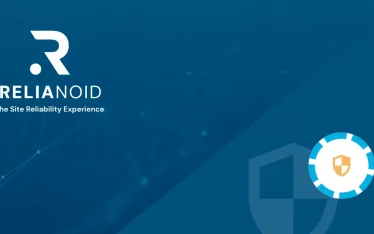Briefly about VMware EAP vulnerability
VMware, a leading provider of virtualization and cloud computing software and services, has issued a critical security advisory urging users to take immediate action following the discovery of vulnerabilities in its Enhanced Authentication Plugin (EAP). This plugin, deprecated as of March 2021, is integral for enabling direct login to vSphere’s management interfaces and tools via web browsers. However, the recent identification of significant security flaws, including an arbitrary authentication relay bug and a session hijack flaw, poses substantial risks to users’ systems.
What is Enhanced Authentication Plugin
In VMware, the Enhanced Authentication Plugin (EAP) is a component that enhances the authentication process for accessing VMware Horizon virtual desktops or applications. It provides additional security features beyond standard username and password authentication.
The Enhanced Authentication Plugin enables various authentication methods, including smart card authentication, biometric authentication (such as fingerprint or facial recognition), or two-factor authentication (combining something you know, like a password, with something you have, like a token or mobile device).
By integrating with these additional authentication methods, the Enhanced Authentication Plugin strengthens the security posture of VMware Horizon deployments, helping organizations protect their virtual desktop infrastructure and sensitive data from unauthorized access.
Detection of a critical security vulnerability
VMware has alerted its user base to a pressing security concern, prompting them to uninstall the deprecated Enhanced Authentication Plugin (EAP) due to the detection of a critical security vulnerability.
Tracked as CVE-2024-22245 with a CVSS score of 9.6, this flaw is characterized as an arbitrary authentication relay bug. The company cautioned that malicious actors could exploit this vulnerability to deceive users with EAP installed in their web browsers into initiating and relaying service tickets for arbitrary Active Directory Service Principal Names (SPNs).
Notably, VMware has recommended the removal of the plugin altogether to mitigate potential threats, as the vulnerabilities will not be addressed.
It’s essential to highlight that only users who have integrated EAP into Microsoft Windows systems to connect to VMware vSphere via the vSphere Client are affected.
The disclosure underscores the critical importance of promptly addressing security vulnerabilities to safeguard systems and data integrity.
Measures to mitigate such vulnerabilities
In light of the critical security advisory from VMware regarding the Enhanced Authentication Plugin (EAP), companies must take proactive measures to safeguard their systems and mitigate potential risks. One of the primary ways to avoid being affected by such vulnerabilities is through diligent security practices and staying informed about the latest security updates and advisories from software vendors.
Implementing robust security systems, such as those provided by RELIANOID, can play a crucial role in enhancing an organization’s defense against security threats. RELIANOID offers advanced security solutions designed to detect, prevent, and respond to various cyber threats effectively. These systems utilize cutting-edge technologies, including machine learning and behavioral analytics, to identify suspicious activities and potential vulnerabilities in real-time.
By deploying security systems like RELIANOID, companies can strengthen their overall security posture and minimize the likelihood of falling victim to exploits targeting known vulnerabilities like the ones identified in VMware’s EAP. These systems provide continuous monitoring and proactive threat detection capabilities, enabling organizations to detect and respond to security incidents promptly before they escalate into more significant breaches.
Furthermore, investing in employee training and awareness programs can help educate staff about the importance of security best practices, such as regularly updating software and promptly applying security patches. By fostering a culture of security awareness within the organization, companies can empower their employees to recognize and report potential security threats, further bolstering their defense against cyber attacks.
In conclusion, while the discovery of vulnerabilities like the ones found in VMware’s EAP underscores the ever-present threat of cyber attacks, companies can take proactive steps to mitigate risks and protect their systems. By adopting robust security measures, staying informed about the latest security updates, and leveraging advanced security solutions like those offered by RELIANOID, organizations can enhance their resilience against evolving cyber threats and safeguard their sensitive data and assets.





